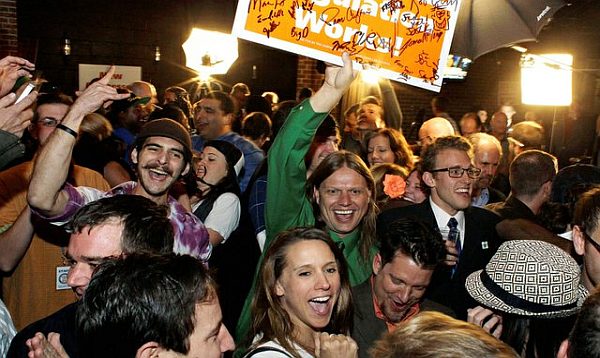Mexico City, Mexico - A top aide to Mexico’s President-elect Enrique Pena Nieto said that the "game-changing" referendum to legalize the recreational use of marijuana in Colorado and Washington will force the Mexican government to rethink their anti-drug strategies.
It is too early to know what Mexico’s response will be, but Luis Videgaray, former general coordinator of Pena Nieto’s successful 2012 campaign who now heads the incoming president’s transition team, said the incoming administration will discuss the issue when they go to Washington D.C. this month for meetings with President Obama.
Mexico has consistently opposed the legalization of drugs, and the Colorado and Washington state votes are in conflict with their government’s longstanding and costly efforts to eradicate the cultivation and smuggling of marijuana.
"I think we have to carry out a review of our joint policies in regard to drug trafficking and security in general. Mexico spends billions of dollars each year confronting violent trafficking organizations that threaten the very security of the country but whose main market is the United States, the largest consumer of drugs in the world," Videgaray said.
"Obviously we can’t handle a product that is illegal in Mexico - trying to stop its transfer to the US - when at least in part of the US, it now has a different status."
With Washington’s urging and support, Mexican soldiers roam the mountains burning clandestine plantations filled with marijuana on its way to the United States. Mexico’s police and military last year seized almost as much marijuana as did US agents working the Southwest border region.
Thousands of people have been killed in drug-related violence in Mexico since outgoing President Felipe Calderon began a military assault on violent drug cartels, and thousands more have been imprisoned. During his presidential campaign, Mr. Pena Nieto pledged to work closely with the US government against powerful trans-national crime organization's drug trafficking.
"The legalization of marijuana forces us to think very hard about our strategy to combat criminal organizations, mainly because the largest consumer in the world has liberalized its laws," said Manlio Fabio Beltrones, leader of Pena Nieto’s party in Mexico’s Congress.
“I think more and more Mexicans will respond in a similar fashion, as we ask ourselves why are Mexican troops up in the mountains looking for marijuana, and why are we searching for tunnels and patrolling the borders when once this product reaches Colorado it becomes legal,” said Jorge Castaneda, former foreign minister in Mexico and an advocate for what he calls an end to this "absurd war."
The Obama administration has been silent on the issue of legalized recreational marijuana, although it vigorously and publicly opposed a similar measure in 2010 in California, which was defeated. At that time, Attorney General Eric H. Holder Jr. issued a warning letter saying the Justice Department would "vigorously enforce" federal drug laws if the state initiative passed. Mr. Holder did not publicly comment on this year’s efforts to legalize marijuana in Colorado and Washington state.
Asked about the Colorado and Washington state votes, Justice Department spokeswoman Nanda Chitre said only: "The department’s enforcement of the Controlled Substances Act remains unchanged. In enacting the Controlled Substances Act, Congress determined that marijuana is a Schedule I controlled substance."
The new laws allow those 21 and older in Washington state to purchase an ounce of marijuana from a licensed retailer and in Colorado to possess an ounce of the drug and grow as many as six plants in private. The Colorado law is scheduled to go into effect in June. The Washington law starts in December 2013.
Despite the lack of comments, current federal law — the Controlled Substances Act — lists marijuana as a Schedule 1 drug, meaning it has a high potential for abuse and has no accepted medical use. Other Schedule 1 drugs include heroin, LSD, and Ecstasy.
Source: Washington Times (photo - AP)


